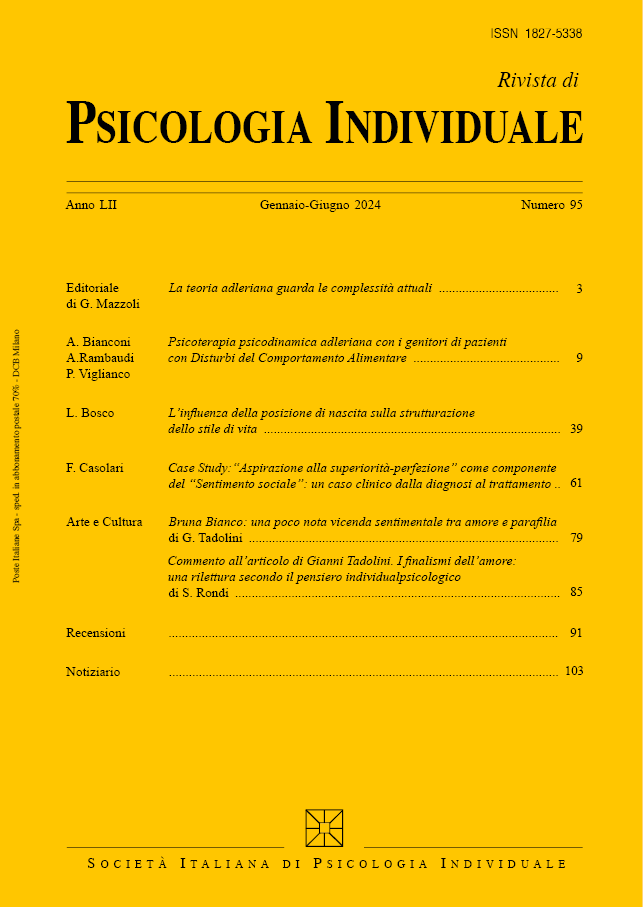The patient Robert Musil
Keywords:
analysis and literature, psychic hermaphroditism, early memories, sense of communinty, violations of the analytical setting, will to powerAbstract
Careful archival research documents the analysis Musil underwent in the late 1920s with Adlerian analyst Ugo Lukacs. German literary criticism has always spoken of the positive effects of this therapy, which are documented not only in Musil's Diaries, but also in his overcoming of his creative block and the radical change that can be seen in The Man Without Qualities, starting from chapter 116. From this moment on, the protagonist clearly manifests in everything—including his earliest memories and dreams—his neurosis and psychic hermaphroditism, which are interpreted in the light of the intertwining of two trees in his life: that of strength (will to power) and that of love (community feeling). The analysis of the protagonist of the novel is, in essence, an analysis of Musil himself. Of particular interest is his ‘unconventional’ relationship with his analyst. The isolation in which Musil died in exile in Switzerland does not signify a failure of therapy, but reflects the difficulties of the war period






